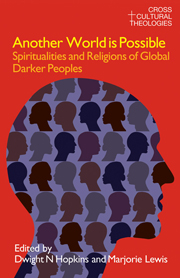Book contents
- Frontmatter
- Dedication
- Contents
- Acknowledgements
- Contributors
- Introduction
- Part I India
- Part II Japan
- Part III Australia
- Part IV Hawaii
- Part V England
- 7 Theology, Violence and the “Other”
- 8 Another Kind of Black
- Part VI South Africa
- Part VII Botswana
- Part VIII Zimbabwe
- Part IX Ghana
- Part X Cuba
- Part XI Jamaica
- Part XII Brazil
- Part XIII USA
- Endnotes
- Select Bibliography
- Index of Subjects
- Index of Names
8 - Another Kind of Black
from Part V - England
- Frontmatter
- Dedication
- Contents
- Acknowledgements
- Contributors
- Introduction
- Part I India
- Part II Japan
- Part III Australia
- Part IV Hawaii
- Part V England
- 7 Theology, Violence and the “Other”
- 8 Another Kind of Black
- Part VI South Africa
- Part VII Botswana
- Part VIII Zimbabwe
- Part IX Ghana
- Part X Cuba
- Part XI Jamaica
- Part XII Brazil
- Part XIII USA
- Endnotes
- Select Bibliography
- Index of Subjects
- Index of Names
Summary
Conceptualizing métissage
In anthropological and literary terms, métis(se) and métissage are generally associated with France, French-speaking Canada and certain Francophone countries such as Senegal. However, as a cultural discourse it has antecedents within colonial histories with distinctively diverse demographic and nationalistic terrains. Ann L. Stoler asserts that:
Although conventional historiography defines sharp contrasts between French, British and Dutch colonial racial policy and the particular national metropolitan agendas from which they derived, what is more striking is that similar discourses were mapped onto vastly different social and political landscapes.
In the French-African (Senegalese) context, in its conventional masculine (métis) and feminine (métisse) forms, métis(se) refers to someone who by virtue of parentage embodies two or more world views.
This French word métissage has been defined as “the crossing of two races.” Together with the Spanish term mestizo/as, which also means “a person of mixed blood,” they register the idea of a mixing of races and/or cultures. Both terms are related to the theme of creolization, which has traditionally been applied to the process of intermixing and cultural change that has produced “new world” societies, in particular, the Caribbean and South America. “Braithwaite stresses that creolization is not a product but a process incorporating aspects of both acculturation and interculturation, the ‘former referring…to the process of absorption of one culture by another; the latter to the more reciprocal activity, a process of intermixture and enrichment each to each’”.
- Type
- Chapter
- Information
- Another World is PossibleSpiritualities and Religions of Global Darker Peoples, pp. 109 - 132Publisher: Acumen PublishingPrint publication year: 2009



